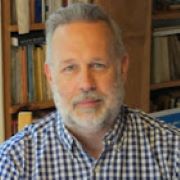 By Gary Link
By Gary Link
“To arrive” means coming from somewhere else. What happens between is a journey. In my case, it was a Buddhist journey.
It’s said a person doesn’t seek a teacher, the teacher finds you. I didn’t know such things when starting out 25 years ago, nor would I have understood it. I’d seen ups and downs, challenges, disappointments, exhilaration and insights. As a westerner from a non-Buddhist home, I unconsciously sought a teaching, philosophy, a way of life, conforming to my worldview and wishes. In hindsight, this was the wrong way and destined for failure. Then again, if my journey were different, I wouldn’t have “arrived.”
Causes and conditions found me going to Chuang Yen, a Chinese Monastery in Carmel, New York. I’d passed it every day for five years on my way to work. I turned into the driveway for reasons unknown. I knew nothing of Buddhism, but longed for something missing from life. The air was crisp and cool. I immediately felt a sense of serenity and peace.
Soon afterwards, I began volunteering at the monastery as a tour guide, cleaning bathrooms, and immersing myself in the Buddha Dharma. I became a member and learned enough to eventually give lectures and dharma talks. I also served 10 years on the Board of Trustees for the Buddhist Association of the U.S. (BAUS). Still, I felt something lacking. I wanted things to be different. Chuang Yen didn’t fit my narrative and my selfish idealism. I wanted to change the institution, but couldn’t, which caused me suffering.
My journey changed again when I discovered two books – Alfred Bloom’s A Commentary with the text of the Tannisho: Strategies for Modern Living, and Kenro Kanamatsu’s Naturalness: A Classic of Shin Buddhism. At first, I read them, but didn’t understand or appreciate them. So instead of focusing on Shin Buddhism I studied other Pure Land Buddhist schools, namely Chinese Pure Land, and then, Hōnen Shonin’s teachings.
I found Hōnen’s Jōdo-shū Buddhism to be completely different from Chinese Pure Land. I contacted Jōdo-shū temples in California and Hawaii, immersing myself in their teachings and practices. They invited me to Hawaii to meet the sangha. I’m deeply grateful for the 10 years I studied Jōdo-shū, but still felt something missing. I became discouraged and impatient, driven by my selfishness.
I hit rock bottom. I decided to let go of my studies, practice, desires and ambition and took a break. By chance, I saw on this Higashi Honganji USA website that Rev. Miki Nakura had a sangha group in the New York City area. I contacted him and we started communicating. He visited me, and my wife, Heidi. It felt like meeting an old friend. We talked about life, the Buddha dharma, and the future. There were no pretenses and no clash of egos. We spoke as equals, sharing stories about our parents, my kids, our lives and our hopes for the future.
Since then Nakura sensei visits me regularly and we correspond frequently. We study, conduct service, and share gifts and books. He opened my eyes to a new world of Buddhist thought and tradition. I try to let this path unfold naturally.
I decided to formalize my commitment to Jodo Shinshu. Last year, my wife and I participated in a “kikyoshiki” ceremony conducted by Rev. Nakura, in which we received Buddhist names. It was one of the most memorable days of my life. I’m dedicating myself to Shin Buddhism through Higashi Honganji. I’m honored and humbled to belong to Shinshu Otani-Ha. It’s a tradition that challenges my worldview and encourages a relentless personal search, embodied by Buddhist teachers such as Manshi Kiyozawa, Ryojin Soga, and Daiei Kaneko.
I’m deepening my study and practice of Shin Buddhist Dharma with Nakura sensei and continue to gain insights into Shinran’s thought through the lens of the great masters. In letting go, the gift of teacher and mentor appeared. I feel an overwhelming sense of gratitude.
I hope one day to become a Higashi Honganji minister. I want to meet others and share the dharma. I feel I’ve come home. My journey led me here. It wouldn’t have happened without everything that came before. Only through the mud does the lotus blossom open to the sky.
-Mr. Link is a member of the New York Buddhist Sangha.

